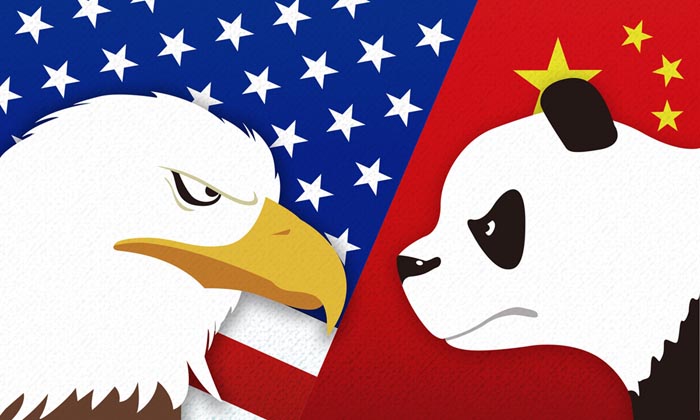
US cannot ‘decouple’ from Made in China
Ding Gang
Washington is in a hurry of late. It has to contain China’s high-tech development on the one hand and is anxious to collect some so-called democratic countries to establish a “democratic front” against China on the other hand.
It appears that the China policy of the Biden administration is not much different from that of the Trump era, as US President Joe Biden still identifies China as its primary strategic adversary and is shifting its global strategy rapidly to this focus.
Americans, however, don’t seem to buy Biden’s policies since they are addicted to things made in China, or rather, are increasingly aware of the fact that their comfortable life is dependent on China-made products.
According to the latest data, the total value of trade between China and the US in the first 11 months of 2021 reached 4.41 trillion yuan ($694 billion), an increase of 21.1 percent over the same period last year. Among them, China’s export to the US reached 3.36 trillion yuan ($528.9 billion). This year’s China-US trade is expected to reach a record high.
We have good reason to believe that without China-made products, especially those at the middle and low end, inflation in the US will be difficult to control while the $1 trillion infrastructure plan cannot be successfully completed as scheduled.
Even though the course of the COVID-19 pandemic is not clear, trade between China and the US is not only unlikely to decouple, but will become even closer, and there is no possibility of a reduction next year. If the US reduces tariffs on Chinese imports, it will further stimulate imports, with bilateral trade likely to exceed 5 trillion yuan (about $786.16 billion).
The situation of a hot economy and cold politics between China and the US explains why China-US ties differ from relations between the US and the Soviet Union during the Cold War. It also makes the wisest choice for the two countries in the future: that is to coordinate, rather than to fight to be a winner.
Washington is not trying to sever this relationship, because in that case, it will gain little benefit. What it hopes to maintain is that China guarantees the supply of cost-effective low- and mid-end products to the US. This can help the US economy continue to stably operate on the basis of low inflation.
Meanwhile, Washington’s strategy is to ensure that the US takes the lead by controlling high-end technologies and prevent the expansion of China’s high-end technologies in the US and the global market, in a bid to maintain the US’ dominant position in the global high-tech and high-tech market.
This is particularly clear in the field of 5G technology. This is also an important reason why the US wants to exploit “democracy” to gather allies.
China’s 5G technology has been under the close watch of the US since its first steps into the global stage. It has also been tagged by the US as undermining the security rules of democratic countries. Washington has constantly threatened that whoever uses China’s 5G technology is putting their security in the hands of a dictatorship. Thus, it keeps forcing them to draw a line and take sides.
The goal of such an attempt to relate advanced technology in communications closely to China’s political system is clear: to contain the development of China’s high-end technologies in the global market and squeeze Chinese companies’ space to forge ahead in the global high-tech industrial chain.
So, on the surface, the US seems to be engaging in an ideological confrontation over the issue of democracy. But essentially, it is trying to ensure its leadership in high-end technologies in the global market.
Because of the siege from the US, China’s development in some high-tech sectors may become slower, and the expansion of China’s high technologies in foreign markets will be hindered. However, Washington cannot change the China-US relations that have developed in the process of globalization, nor can it prevent Chinese companies from advancing in high-tech sectors.
If Washington truly understands China’s political system, then it should understand that the strength of China’s system lies not only in its democracy, which is in line with the country’s development practices. It also lies in its characteristics of being “centralized,” which will show its potential power amid the US siege.
The writer is a senior editor with the People’s Daily, and currently a senior fellow with the Chongyang Institute for Financial Studies at the Renmin University of China.
